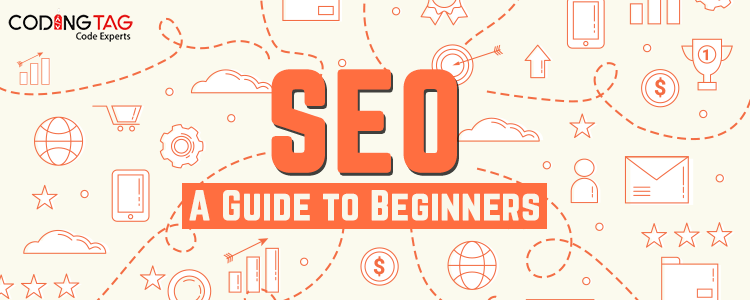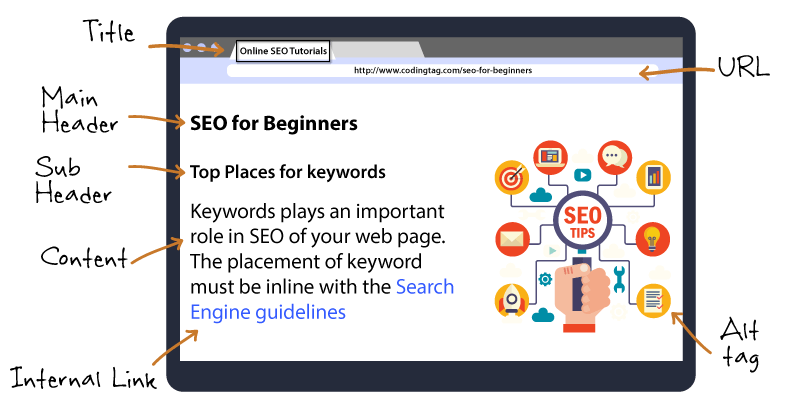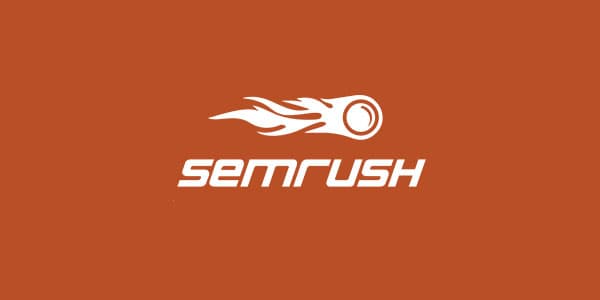SEO for Beginners
Last Updated by Yogesh Khanna
8 14797
SEO is an acronym for Search Engine Optimization. This essentially means the practice of increasing the quality and quantity of traffic to your website. By this process, the content on your website is optimized to rank higher in the search results of a search engine. Paying heed to the SEO, in turn, pays you (and often well) by accumulating organic traffic to your website.
Start Optimization with Top Level Hosting
Now there are specific terms that are apparent for an SEO expert but can be confusing for a novice. Organic search is one of them. So, sit tight while going through this "beginner's guide to SEO" as I am sure after pondering on this, you will find yourself a couple of levels up in SEO.

Just to ease your burden, organic search (aka natural search) is a kind of search that is essentially nonpaid and generates traffic on your web site through the results of search engines.
Let's see how SEO works
What is a Search Engine?
A Search Engine is a web-based tool that enables users to locate sites on the Internet. The search engine searches the database (World Wide Web) based on the query/keywords (we will discuss keywords in detail).
The most famous examples of Search Engines are Google, Yahoo, and Bing, etc. (you got it right, Google also has some competition), though search traffic originates from Google is approximately 85% of the total.
Whenever a user types in a request which actually comprises of the keywords, for looking up a particular site on the Internet, these search engines use different ways to generate results through a unique and complex set of a mathematical formula.
Each Search Engine's algorithms are unique, so top ranking in one search engine does not guarantee the same in others.
Search Engines work on the fundamental of collecting and indexing content from all over the web for storing it in a database. Google's dominance among the other search engines is primarily because of its gigantic index size and its computational power for page relevancy (its algorithms). So, I have introduced various Search Engine, let us use this online SEO tutorial to check how these search engines work.
Recommended Blog: SEO Interview Questions
How do Search Engines Work
Considering this as a beginner's guide to SEO, I'm trying to simplify it to the extent possible. There are 3 significant steps involved in the working of a search engine.
1 Crawling
Google and other Search Engines use a computer program commonly called a "Crawler". As the name suggests, this Crawler crawls or discovers pages and its links on the internet.
For e.g., Google starts with a webpage. It then looks for the links on this webpage and follows them to discover the other webpages. It iterates the complete process on the new webpages and jumps to another page through links.
By doing this, eventually, it's able to discover almost everything on the web. While doing SEO for any web page, we always ensure doing everything we can to make this Crawling super easy and efficient for the web page. This, in turn, helps to raise the page ranking.
2 Indexing
Once the webpages have been found, the Crawler then begins to extract data and store it on the Google's (or other Search Engine's for which the Crawler belongs) database. This extracted data will be shown during search results. Now, the best part is that the Crawler does not see the webpage as we see it.
The Crawler will note down things like the date a page was created on, the title and meta descriptions of the page, the main keywords on the page, links to and from the page, and may other details that are specific to that particular Search Engines algorithm.
We ensure that the data a Search Engine indexes after Crawling the page is precise and accurate. This boosts our webpage's chances to show up in a search result where we want it to.
3 Returning Queries
When you type in a search into a Search Engine, like Google, it searches within its database for the webpages that are the most relevant to your query and displays them as a search result. This is determined by every Search Engine's own unique algorithm, proprietary to the search engines for which no one knows the details.
However, the one factor that everyone agrees upon is that the number of qualities back-links that are placed on the target page is a strong factor for Search Engines.
Google and other Search Engines place strong importance on back-links for relevance. In SEO, we also make sure that the back-links are in place to increase the relevance of our web page.
Types of SEO
To know how SEO works, we first must know about various types of SEOs. There are 2 different types of SEO in Digital Marketing:
1 ON-Page SEO
This refers to all the measures you take to make your web page rank higher on Search Engine results. On-Page SEO can be done by paying attention to the details mentioned below.
- Keywords - These are the group of words that a user will put in a search engine to find what he or she is looking for (Details about keywords are mentioned in the next section).
- Meta Description - It is an HTML tag of 160 characters which summarizes the content of the web page.
- Alt Text (for picture files) - This is a description of the image attached on the web page. This "Alt Text" is displayed whenever an image failed to load. This is also used in describing the image by web readers.
- Title Tags - This is the title of the web-page. Kindly note this is different from the heading (HTML headers) as this is the content which is displayed outside the main window of browser which is on top of it.
- SSL/HTTPS (page security) - In order to encourage security over the internet, Google search boosts the pages where SSL is applied.
- URL Structure - A URL which is a human-readable text format of the IP address, signifies contains the Protocol, Domain name, and path. A well-defined easy to read URL helps crawler to identify the page.
- Internal Linking - These are the links with are to and fro from your site to other and vise versa.
- Page Performance - This is the speed at which the page is loaded or rendered into the browser. This plays is significant role in SEO.
2 OFF-Page SEO
This refers to everything you do outside your website to rank higher on Search Engine results.
- Backlinks - Explained in detail in the next section.
- Domain Authority - Domain Authority: It is a search engine ranking score developed by Moz that predicts how well a website will rank on search engine result pages (SERPs). Domain Authority is calculated by evaluating multiple factors, including linking root domains and total links, into a single DA score. It is being scored on a scale of 1 to 100 (higher is better). DA Score between 40 to 50 is considered as average, 50 to 60 is good and above 60 is excellent.
- Social Promotion - These are the promotional ads (often paid) on social media platforms to advertise your web-page.
How to Optimize my Webpages?
To this point, we have understood how webpages are crawled and indexed. The foremost question which arises at this point is "How to optimize the page?".
In this SEO online tutorial, I have thoroughly explained the vital steps which will lead the desired optimization so that your web page can gain ranks in search results.
Following are a few steps you can follow:
1 Understanding Keywords
A user will search for your brand or product in a ton of different ways, and as such you need to make sure that you have all your keywords in place. For example, you are running a "Pet Grooming" business in Gurgaon, Sector-25.
Common keywords which a person can search for can be
"Pet Grooming in Gurgaon" or "Gurgaon Pet Grooming" or "Pet Grooming in Sector-25 Gurgaon" or even "Pet Grooming near me" As you can see, also though the users have jumbled the words in different ways, but they are asking the same thing in different ways.

So finding the most popular ways that users are searching for your business becomes really important. And by doing this, you can optimize your content for those phrases/keywords.
There are various tools for which a user has to pay to access a variety of high-level keyword suggestions. However, you can also use a combination of free tools to get a list of Keywords.
The top free sites are:
- Google AdWords: Keyword Planner - The primary benefit of this tool is that the user can extract information directly from Google. This is highly beneficial as Google is the most likely Search Engine you would target when optimizing your website.
- AdWord & SEO Keyword Permutation Generator - This tool is user friendly and easy to get creative as you search for keywords that align with your site, marketing strategy, and goals. You can enter a keyword in each of the three boxes and hit Generate Permutations and get results for the same.
- Google Correlate - Google Correlate is an often-overlooked tool that can be extremely powerful for generating the Keyword list. The foremost advantage is this tool's ability to see which keywords get searched together on the internet. Armed with this information, you can easily begin to grow your Keyword list.
- IM for SMB Bulk Keyword Generator - IMB for SMB Bulk Keyword Generator works best for local service companies, as it is designed with the idea that you'll want to find local keywords.
- Keyword In - This tool is useful in effortlessly combining your keywords. Long Tail Keywords with longer and highly specific phrases that people use while searching in a Search Engine. This tool mashes everything together to provide you with a long list of potential Keywords.
When it comes to keyword research, I would suggest that rather than guessing and hoping for the best, it's better to experiment with different Keyword research tools. This ensures that you choose the right keywords for your site and help you in your content and increase your ranking with search engines.
I hope you are finding this "Beginner's guide to SEO" very helpful in filling your gaps on the topics. If you want to learn more about such interesting topics.
Do subscribe to our website.
2 Content Creation
Content is what matters. Your content makes your site stand out from other sites and tells the Search Engines what your website is all about. Nowadays, SEO is all about quality content. And to create high-quality content, you need to plan it from the design phase itself.
Questions like, What is the purpose of your page?
What does the user want to or need to know about this topic?
What kind of content is required to convey your message as effectively as possible?
The answers to such questions should be used in website formation, as the design must be crafted to accommodate the content. Your Webpage content should be consistent with your research. Facts and figures should be accurate as well as descriptive. Make a habit of having bullet points in your content while explaining specific sub-topics.
- Using Examples - Use of examples on your webpage is also an important point to note. People tend to understand a point better when explained with an example. Real-life examples receive more interactions from your audience, rather than just plain old boring ones.
- Explaining with Images - Explaining with the help of pictures on your webpage is another very effective way to get your audience's attention. I have noticed that people always find an image more interesting than words. Besides this, the use of images greatly enhances the quality of the webpage. Spend some time analyzing search intent, and make sure you give the users what they want to see.
3 Dynamic Title
I've talked about how to rank your webpage for popular keywords. But you need users to firstly click on to your webpage. For this, you need to make your titles and descriptions as click-worthy as possible. Your webpage heading is the one main factor that is going to pull your audience in.
Your topic will be doing a significant part in capturing your audience's attention; however, it's your headline that will lure them into reading more about it. Don't make it lengthy or over complicated and make sure that's it's a powerful one and to the point. Next is your opening description.
This will determine how many of your readers decide to continue reading your blog and how many will leave. The stronger the opening, the better the whole Blog performs.
4 Keep your Opening Real
Talk about your personal experience with real-life examples regarding the topic. You need to show your audience why you are passionate about it and what made you want to Blog about it.
If you succeed in that, the rest is smooth sailing all the way.
5 URL
Keep your URL simple, relevant, and accurate to get your users and the Search Engines to understand them. Even though you can add numbers and codes, the best practice is to use words that people can relate to when finding something specific. URLs should be definitive but concise so that just by seeing the URL, the user (and the Search Engine) should have a good idea of what to expect on the page.
Avoid the use of underscores, spaces, or other characters to separate words. Also, make sure to have your keyword/s included in the URL.
6 Images
Images are an important part of any webpage. Having the correct and high-quality images not only gives the users a better understanding of the content but also enhances the look of the webpage. Although it can be a little time consuming, but make sure to name all your images properly. Optimize all your images by including "ALT TAGS" with descriptions.
This is the text that shows up whenever your images fail to load. The Search Engine crawlers cannot see the images like us and rely on these descriptions to understand the images better. Also, do your best to keep the image sizes as low as possible for better optimization.
7 Back Links
Firstly, let me explain what a Backlink is. A hyperlink that's incoming from another website, or referring domain to your target webpage is called a Backlink. In simple words, when another site links to your webpage, it's giving you a Backlink. Backlinks are like votes that come from other websites, and each of these votes tells the Search Engines that this content is valuable, credible, and useful.
The more and better quality backlinks you have, the higher your chances are of ranking a page, and the more search traffic your webpage will get. Not All Backlinks are the same, and therefore you will need to focus on the right kind of Backlinks to attach to your webpage.
There are a few things to keep in mind before attaching quality backlinks, like:
- It should be from a trusted, authoritative website
- It should include your target keywords in the link
- The site/page linking should be topically related to your site
- It should be a "Do Follow" link
- It is from a domain that has not linked to your page before
Through this SEO tutorial, I have tried to explain the key points to keep in mind in mind while doing the SEO of your web page I hope that this post has given you enough background information and some tips on getting started with your SEO journey.
Wait... Bonus Material!
Here I am sharing the practical tip about keywords and how they must be incorporated in your web-page content. Look, I said that we would discuss this in detail, so I keep up my promise
Now Search for these words in this Beginner's Guide to SEO.
How SEO Works, Beginner's Guide To SEO, SEO tutorials, SEO for Beginners.
I know you get it, these are my keywords for this web-page. By this bonus material, I got one more chance of putting these keywords in the content.
Do comment If you like the blog . This will definitely boost up our morale.
Keep Learning

Share:








Vijay Singh Mar 31, 2022
Thanks for sharing
Rahul Singh Jul 23, 2020
Really it's a very nice seo blog for beginners. A lot thanks to Coding Tag.
Mahesh Kumar Jul 20, 2020
Thanks for Coding Tag! It's a very knowledgeable blog on SEO Guide for Beginners. So I like this your SEO blog.
Blogger Pohor Jul 19, 2020
Nice article. For beginners it's a nice information to get going for the career of blogging or any other marketing field..
Ravinder Feb 05, 2020
I think this article is short and simple but still effective.
Kamal Jan 22, 2019
Really, Very Helpful Article.
Pooja Jan 22, 2019
Really, It's Helpful.